Acute Insomnia: Symptoms, Causes, and Treatment
Not all forms of insomnia are created equal. This sleep disorder (which affects nearly 70 million Americans) varies drastically from one person to the next. While some people suffer for years at a time, others experience trouble sleeping short term. This is the difference between chronic and acute, or transient insomnia.
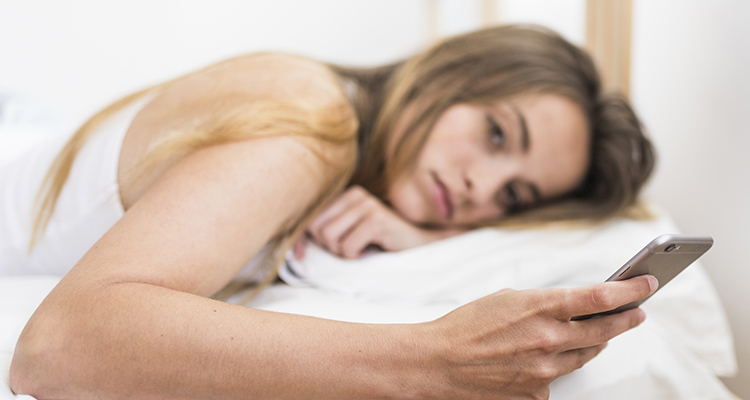
Each type of insomnia has its own set of causes and symptoms, but one thing they all have in common is the ability to interfere with your everyday life. Mood swings, an inability to focus, and depression are just a few of the negative ways that insomnia can impact your life.
Understanding exactly what acute insomnia is can help you not only recognize it but take the necessary steps to combat it and return to a happy, healthy way of life.
Let’s take a closer look at exactly what acute insomnia is, its causes, and how to overcome it.
Content
Acute Insomnia vs. Chronic Insomnia
The main difference between acute and chronic insomnia is how long the symptoms last. Chronic insomnia is a long-term condition that can plague sufferers for 3 months or longer. Chronic insomnia also occurs, on average, at least 3 times per week. Acute insomnia, on the other hand, is a short-term condition that can impact sleep from one night to several weeks, but eventually subsides.
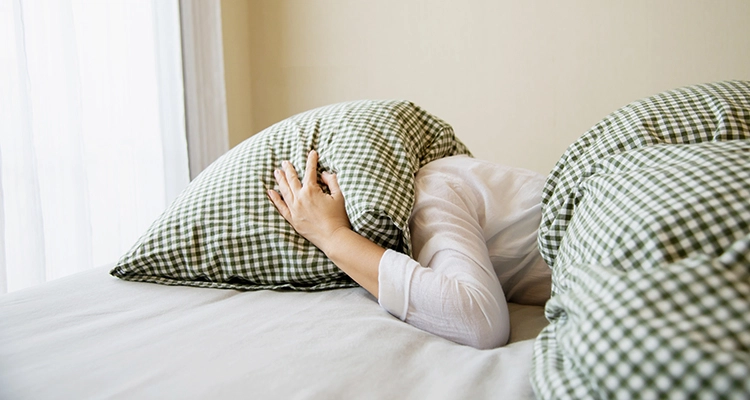
It’s interesting to note that both types of insomnia can come and go over a period of time. Insomnia sufferers may have several nights of disrupted sleep, followed by one good night of rest. The problem for chronic sufferers is that these inconsistent sleep patterns usually last for weeks and months at a time, causing adverse side effects and health complications. Acute insomnia sufferers are also at risk for health issues and erratic sleep patterns, but the side effects are often less severe because the condition is briefer.
Causes of Acute Insomnia
Acute insomnia is sometimes referred to as adjustment or transient insomnia because it comes and goes quickly. There’s no one cause for this condition but, instead, a host of triggers and circumstances that can cause a temporary disruption in your sleep patterns.
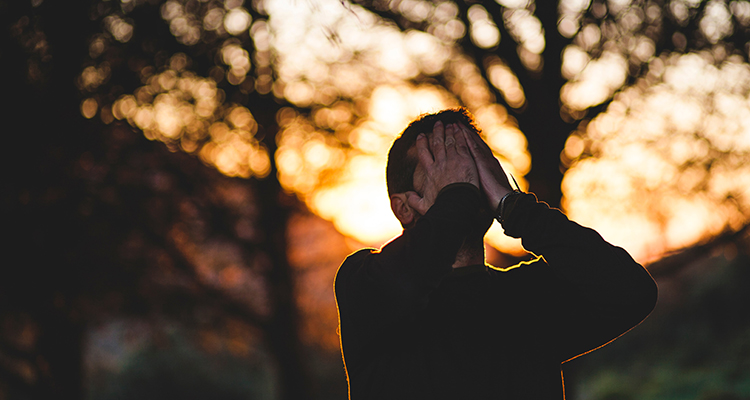
Stressful or Traumatic Event
This is the most common cause of acute insomnia. Stressful or traumatic events including divorce, death of a loved one, career change, and other major life events can make it difficult to fall and stay asleep.
Tension in your body and muscles is the main culprit for stress-related insomnia. Many people don’t even realize that they’re holding a lot of their stress in the muscles of their neck, back, and shoulders. This can create tightness and pain, making it difficult to find a comfortable sleeping position.
Excess stress affects your mind as much, if not more than, it affects your body. When you’re stressed or upset, your body is in a constant state of alertness. Your might is likely racing with countless thoughts, scenarios, and events. It can be difficult to calm your mind, purge negative thoughts, and relax your body enough to fall asleep. These racing thoughts can also resurface as nightmares, waking you during the night and disrupting your sleep.
Additionally, stress triggers your body’s autonomic nervous system (ANS) to release cortisol and adrenaline, two hormones that increase your heart rate and blood circulation. This surge of hormones, also known as your body’s flight or fight response, puts your body in a state of action, not rest. Unfortunately, in the high-stress world in which we live, this survival mechanism is often triggered by non-threatening events. Stressful life occurrences can cause your body to enter a heightened state of awareness 24/7, causing acute insomnia for many.
Sleeping in Unfamiliar Surroundings
Have you ever spent the night at a hotel, friend’s house, or outdoors only to wake the next morning feeling terrible? Or did it take you much longer than usual to fall asleep? By nature, we’re creatures of habit. Many people are most comfortable in familiar surroundings. You lower your risk of experiencing acute insomnia by sleeping in a familiar place. Unfortunately, this isn’t always possible.
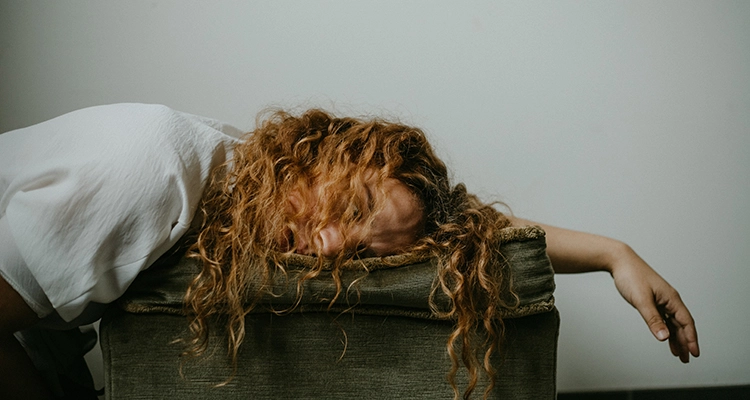
When sleeping in an uncontrolled environment, you’re also susceptible to other distractions like noise, light, and temperature changes. These external factors can disrupt sleep and make it difficult for you to get comfortable. A mattress or pillows that are too firm or too soft can also interfere with how fast you fall asleep and how deeply you sleep. For most people, returning home to their normal environment can help quell these irrational fears and improve sleep quality.
Physical Discomfort
Constant pain can wreak havoc on both your physical and mental wellbeing. It can also make it nearly impossible to fall and stay asleep, causing bouts of acute insomnia. Because this type of insomnia is short-term and generally comes and goes, the pain we’re referring to is usually due to an injury or isolated incident. Car accidents, sports injuries, and back or neck injuries can all cause the pain and discomfort we associate with acute insomnia.
For starters, finding a comfortable sleeping position can be nearly impossible when you’re in pain. This is especially true for neck and back pain. You may need to adjust your pillow, mattress, and sleeping position. Even then, many people toss and turn throughout the night in an effort to find comfort and avoid triggering pain. Depending on the severity of your condition, pain can wake you up multiple times during the night, starting the grueling process of falling asleep all over again. This type of acute insomnia is sometimes referred to as pain-related insomnia and in many cases, gets worse with time, resulting in a chronic condition.
Anxiety is another adverse effect of pain. As previously mentioned, stress can make it difficult to fall asleep. Anxiety induced by pain is no different, disrupting sleep and making it difficult to fall asleep. This also creates a vicious cycle. First, your pain causes anxiety, which can cause acute insomnia. As one sleepless night rolls into the next, you become more anxious over your inability to sleep. Now, both the pain and anxiety are keeping you up at night creating a troubling, stressful situation.
Illness and Medication
Certain illnesses and medications can put you at greater risk of developing acute insomnia. Any illness that causes symptoms like congestion, coughing, headache, or fever can make it difficult to fall asleep. Once you do, restlessness generally sets in. If your fever spikes or your cough kicks in, it will likely wake you up numerous times throughout the night. These symptoms can also make it difficult to fall asleep in the first place. The same can be said for stomach issues like nausea or diarrhea. The good news is, many of these illnesses pass quickly. Once you’re returned to a healthy state, acute insomnia symptoms should also subside. Serious illnesses like diabetes, cancer, and Parkinson’s or Alzheimer’s disease can cause chronic insomnia.
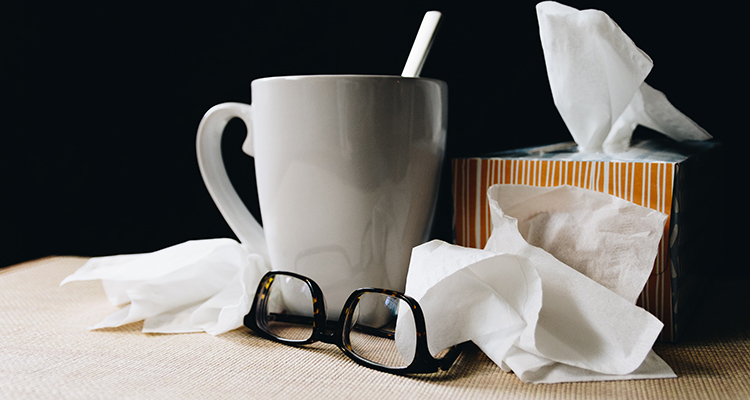
- Steroids
- Decongestants and other cold and cough medicines
- Selective serotonin inhibitors
- Antidepressants
- Appetite suppressants
- Diuretics
Caffeine, alcohol, and nicotine are also classified on this list.
Changes in Time
Your body has a natural circadian rhythm that controls your sleep and wake hours. This internal clock triggers your brain to start releasing melatonin and serotonin at a certain time in the day. This is also why maintaining a consistent sleep schedule is so important. If your body is accustomed to going to sleep at 10:00 p.m. and waking around 7:00 a.m., time changes, jet lag, or visiting a different time zone can disrupt your sleep for several days to weeks.
Jet lag or visiting another time zone are two ways that time can interfere with your sleep patterns and cause acute insomnia. Traveling from one coast of the United States to another isn’t too drastic of a time change (3 hours), whereas when you travel from the United States to Europe, you’re facing a 6-hour time difference. Travel beyond that to Australia and the time difference jumps to 14 hours! That’s more than half a day. This drastic change in light and dark hours can also throw your internal clock off-balance, making it difficult to fall asleep. It can take several days to weeks for your body to readjust and return to “normal” once you return home.
Poor Diet and Lifestyle Choices
Sometimes, a few bad decisions can lead to several nights of restless sleep. Eating too close to bedtime or eating large meals prior to laying down can cause bloating, discomfort, and gas. In addition, eating triggers your body to start the digestion process, causing spikes in your insulin levels. These spikes trick your brain and body into thinking it should be awake, not preparing for sleep.
Unhealthy lifestyle choices like drinking alcohol in excess, smoking cigarettes, and doing illegal drugs can all cause acute insomnia. Even one night of drinking can interfere with your natural sleep cycle. While at first, alcohol relaxes you and makes it easy to fall asleep, once those effects wear off, you’re more likely to experience disrupted sleep. The nicotine found in cigarettes is actually a stimulant, making it difficult to recognize when you’re tired. Nicotine use also increases your chances of developing sleep apnea, a condition that may lead to chronic insomnia.
Signs of Acute Insomnia
Not sure if you’re suffering from acute insomnia? A few tell-tale signs can help you identify this condition and take the necessary steps to prevent and combat these unwelcome sleep disturbances.

- Difficulty falling and staying asleep
- Waking up multiple times throughout the night
- Waking to feel tired, irritable, and confused
- Waking up earlier than normal
- Daytime fatigue
- Memory issues
We’re all familiar with that groggy feeling of waking up after tossing and turning all night. Or the anxiety that accompanies hours of staring at the ceiling, willing your mind and body to relax enough for you to fall asleep. Countless incidents and conditions can trigger acute insomnia. The good news is that for many people, these symptoms subside with time. If they don’t, you may be facing a case of chronic insomnia.
Acute Insomnia Treatment
More good news! Most cases of acute insomnia dissipate when the condition or trigger that caused them is eliminated. In the meantime, there are several things you can do to help prevent acute insomnia and help ease any symptoms you’re currently experiencing.

Adopt Healthy Sleep Habits
The best defense against acute insomnia is a strong offense. To prevent acute insomnia from invading your life, try adopting healthy sleep habits from the start. This includes things like avoiding screen time before bed, practicing meditation or mindfulness, and turning your bedroom into an oasis for sleep. Avoid bringing any stress into your bedroom. This sacred space is meant for sleep and nothing else. Invest in yourself by purchasing high-quality bedding and a mattress to optimize your comfort. Use an essential oil diffuser to fill the room with sweet scents like lavender and ylang-ylang. Hang lights to create ambiance and drown out external distractions by using room darkening shades or a white noise machine. If possible, create a consistent sleep schedule that involves going to bed and waking at the same time each day.
Stay Active and Healthy
Being active during the day prepares your body for a restful night’s sleep. Try incorporating exercise into your daily routine. Avoid heavy or large meals close to bedtime. Instead, opt for a hot cup of tea and have your last meal at least 2 to 3 hours before bed.
The less often you get sick, the less often you’ll likely experience acute insomnia. Stay up-to-date on all your medical appointments and tests. Be mindful of what medications you’re taking and if their ingredients will worsen your insomnia. Staying active and healthy also reduces your risk of experiencing unwanted pain and discomfort, another common cause of acute insomnia.
Reduce Stress
Since stress is one of the main causes of acute insomnia, reducing stress in your life is a must for keeping this sleep disorder at bay. While you can’t prevent traumatic or unexpected experiences like death, a move, or divorce, you can take the necessary steps to reduce your daily stress. Mindfulness and meditation are the perfect way to remain in tune with your mind and body and help keep negative thoughts and feelings away. You can also try keeping a journal and reciting positive affirmations. Practicing yoga or engaging in outdoor activities like hiking and walking are great for your health and mental wellbeing. The less stressed and tense you are, the less likely you’ll be to experience temporary insomnia.
Experience Blissful Sleep Now and Forever
Without quality sleep, you can’t function the way your body and mind are intended to. Mood swings, depression, and confusion caused by insomnia can interfere with your productivity, relationships, and happiness.

Say goodbye to acute insomnia caused by stress, illness, or pain. Somnus Therapy offers an at-home approach to achieving deeper, longer, better sleep. Through meditation, sleep restriction therapy, and cognitive restructuring, you can achieve the best sleep of your life, every night. Click here to embrace a new life of renewed rest and energy!













